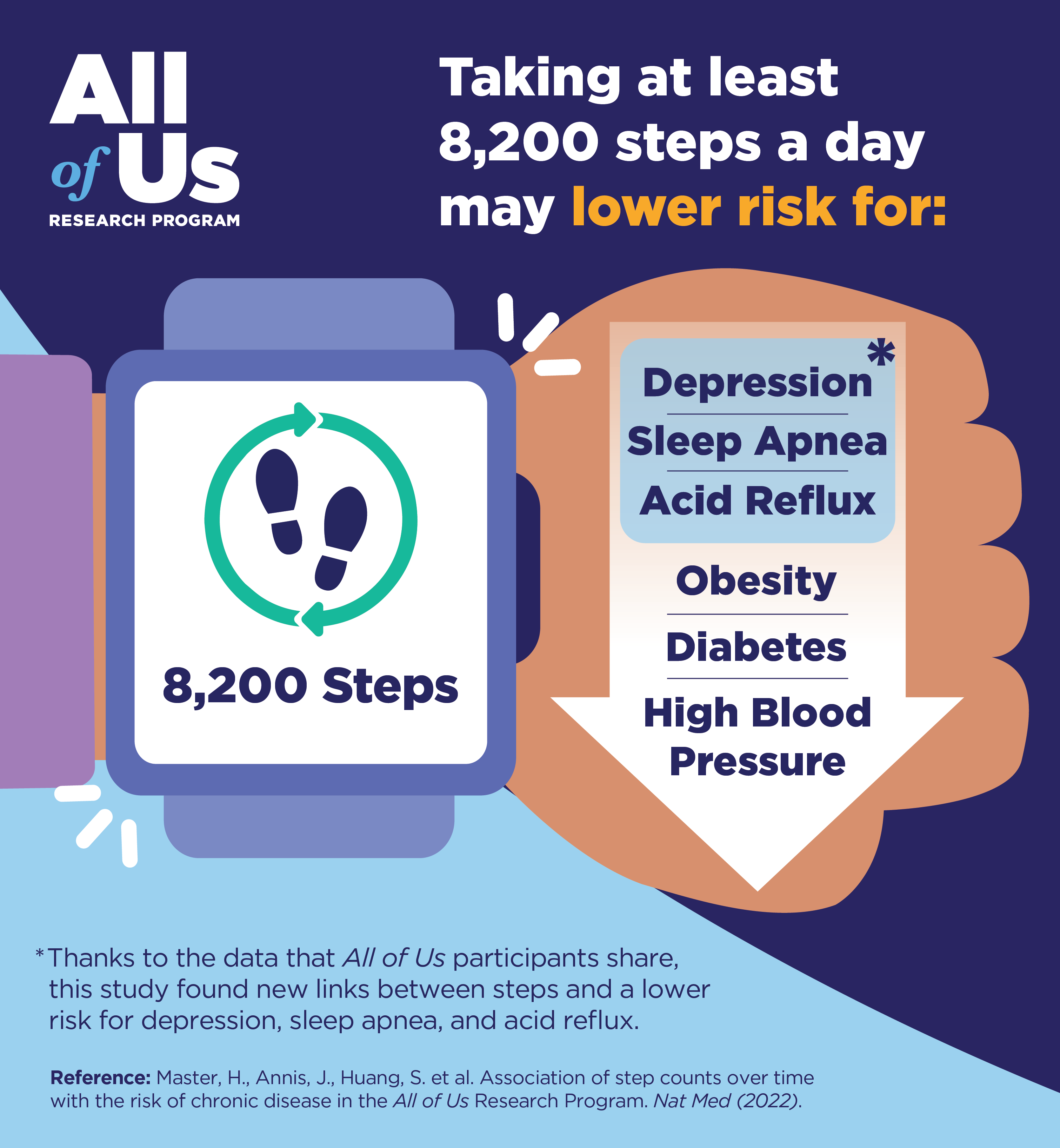Key points
- Researchers compared All of Us Fitbit data and electronic health records.
- Taking at least 8,200 daily steps was linked to lowering risk for certain health conditions—including depression, sleep apnea, acid reflux, high blood pressure, obesity, and diabetes.

Fitness is hard to study. We know that walking every day can help prevent diseases. Exactly how many steps protect against which diseases is harder to understand. Most of what we know about steps and health comes from short studies that use self-reported data.
A new study in Nature Medicine used All of Us participant data to learn more.
Researchers linked data from personal Fitbit devices with data from electronic health records (EHRs). Taking at least 8,200 daily steps was associated with a lower risk for certain health conditions. This included chronic diseases like high blood pressure, obesity, and diabetes. The study also uncovered new links between daily steps and lower risk for sleep apnea, depression, and acid reflux.
Wearable Trackers for Fitness Research
All of Us participants can choose to share their Fitbit data with the program. Using data from personal trackers allows participants to track exercise on their own time. It also lets them share data from as far back as when they started using their device.
Wearables improve the quality of study data. They provide real-world data on a person’s physical activity levels. This is more accurate than relying on a person’s recollection of what they did (called “self-reported data”). Researchers can also look at changes in activity over a longer period. All participants in this study had at least six months’ worth of data. Many people shared four years or more of their activity data.
Daily Step Counts to Protect Against Disease
This study also used electronic health records (EHRs). Fitness research often looks at links between exercise and major causes of death, like heart disease. Having access to data from EHRs meant the researchers could study a range of other conditions that affect people across their life span.
The researchers analyzed more than 1,700 medical conditions. They compared these disease records with participant Fitbit data. People who took at least 8,200 steps each day had lower rates of certain health conditions. Previous research has studied this link for diabetes, high blood pressure, and obesity. Thanks to the variety of All of Us participant data available, though, this study found new links to lowering risk for acid reflux, depression, and sleep apnea.
What’s Next
These results give doctors more evidence for recommending certain levels of exercise to patients. Doctors call these “personalized activity prescriptions.”
However, there are some limitations to the study. Most of the people in this study were White, female, and college educated. They were also very active and healthy. Therefore, these findings may not apply to people who are already living with disease or have trouble walking.
We need more diversity in this type of research. Over time, All of Us hopes that more participants of different races, genders, ages, and walks of life will choose to share data from their fitness trackers. That way, findings like these can better represent communities across the country.
Interested in All of Us?
- Read more research highlights.
- Learn about participation in the program.
Conduct research with All of Us
- Learn about opportunities for researchers.
- Find funding to support research using All of Us data.
- See more research projects made possible by All of Us data and tools.


